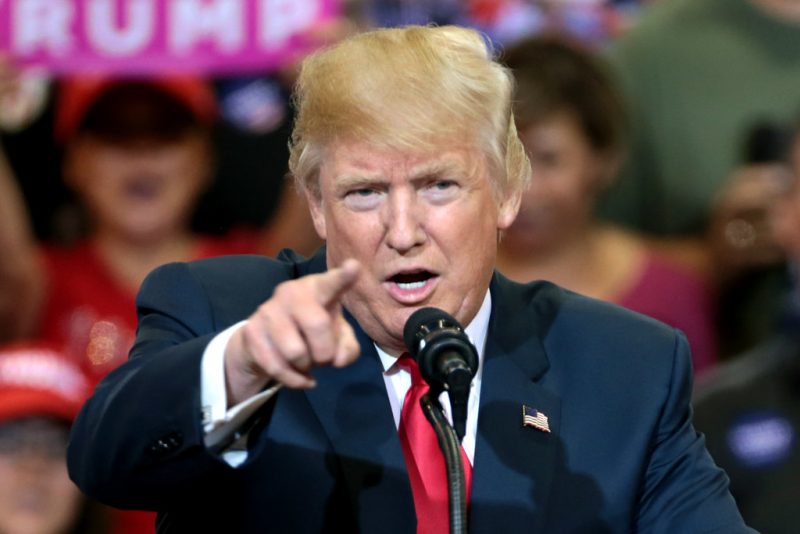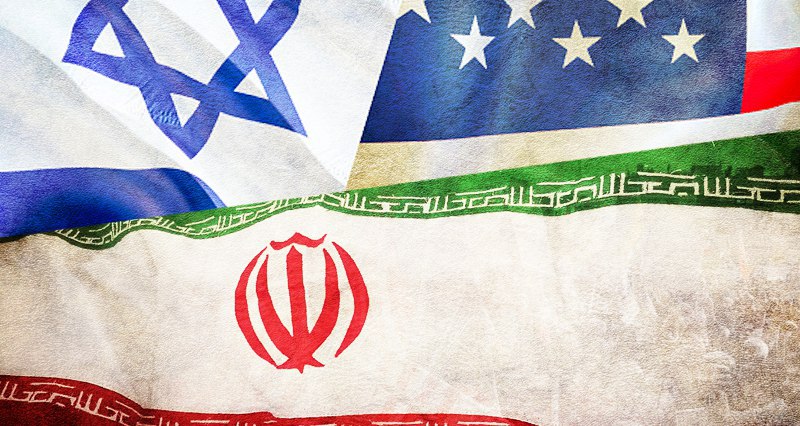The New York Times reports that, against the backdrop of the novel coronavirus pandemic in Iran, a number of officials in the Trump administration are insisting on the need to take advantage of the country’s weakening and strike. In the meantime, a systematic policy of pressure on the Iranian authorities to reduce the role of Hashd Shaabi units, as well as the regrouping of the contingent with a systematic increase in anti-aircraft defense – in particular, through the transfer of air defense systems Patriot in the Middle East, continues.
On March 11 and 14, Iraqi militia attacked Camp Taji in Iraq, where coalition forces led by the United States were deployed. Three American and one British soldier were killed.
According to NYT sources, “Secretary of State Mike Pompeo and Robert C. O’Brien, the national security adviser, urged a tough response to rocket attacks that had killed two American troops at a base north of Baghdad, arguing that tough action while Iran’s leaders were battling the coronavirus ravaging the country could finally push them into direct negotiations.” The Pentagon, however, resisted, fearing full scale war with Iran.
However, Trump did not listen to Pompeo and O’Brien’s arguments, fearing that strikes against Iran against the backdrop of the coronavirus could negatively affect the image of the United States.

Flickr
The Party of War
However, against the background of the coronavirus epidemic in Iran, independent media reports suggest that the US may use the difficult situation in the country to start a war.
As an independent investigative journalist Gareth Porter reports, last year Mike Pompeo as well as Israeli prime-minister Benjamin Netanyahu tried to push the US towards the war with Iran. Even the suggestion to kill Qassem Soleimani was firstly proposed by the former President’s national security advisor John Bolton and Pompeo.
“The approaching presidential election gives both Pompeo and Netanyahu a powerful reason to plot another strike, or a series of strikes aimed at drawing the US into a potential Israeli confrontation with Iran,” Porter informs.
He cites former Israeli Ambassador Michael Oren, who at the end of last year, declared that it will be better for Israel if the war with Iran occurs during the current [Trump] administration, which can be counted on to provide Israel with the three sources of American assistance it traditionally receives in wartime.” Israeli Army Chief of Staff Aviv Kochavi in December according to Haaretz military correspondent Amos Harel declared that it will be “more serious confrontation with Iran in the coming year as an almost unquestionable necessity.”
Thus, it is possible to draw the conclusion that Israel considers the conflict with Iran to be real and seeks to be preemptive by starting a war while the US has the most loyal administration to Israel in recent history.
Has the Coronavirus COVID-19 pandemic changed this approach?

Israel: strike first
In early March, despite the outbreak of coronavirus, Israel actively discussed the topic of strikes against Iran. On March 2, the third parliamentary elections since last spring were held there. One of the main issues facing the future leader of the country according to the media is the ability to strike Iran. So Yisrael Bachar (a former strategist for Benny Gantz) said that Gantz would be too afraid to attack Iran. Following that, the media in Israel began discussing the topic as if the strike on Iran was the main responsibility of the Israeli leader this year.
Kirsten Fontenrose is director of the Scowcroft Middle East Security Initiative at the Atlantic Council calls for the “international community” to think about “getting involved” “if the virus culls the senior ranks of the regime and creates a momentary crisis of legitimacy”.
Thus, American experts say that the US may use the coronavirus epidemic in Iran for regime change.
This may also explain the new US sanctions imposed in the midst of the epidemic. Instead of lifting the sanctions, which would help the affected country, Washington announced on March 19 that it was strengthening restrictive measures against Tehran.
On March 10, Ken Cohen from Jewish News Syndicate said that amid the coronavirus catastrophe in Iran, Israel should strike first. “With decreased Iranian support for foreign adventures, Israel may find new opportunities to attack and minimize these threats on its borders”, he declared.
Behnam Ben Taleblu, a senior fellow at the hawkish Foundation for the Defense of Democracies told the Hill newspaper that “regardless of coronavirus, regardless of the strike on Soleimani, the US and Iran remain on an escalation glide path, and an escalation glide path is going to necessarily feature peaks and troughs of tension between the US and Iran and its partners and proxies in the region.”
US Central Command Chief Gen. Frank McKenzie recently told the press that he expects Iran to be more aggressive to the US in order to distract public attention from the coronavirus problem.
The military prepares
However, it is not Iran that is preparing for the conflict, but the United States.
As Associated Press report on March 23 says that US Marines “amid tensions with Iran and despite the new coronavirus pandemic” and together with colleagues from the UAE, conducted exercises to capture a typical Middle Eastern city: “a model city, complete with multi-story buildings, an airport control tower, an oil refinery and a central mosque”. Where are US soldiers preparing to fight, conquering the typical Middle Eastern City with an oil refinery?
In early March, the National Interest commented on the news that the US State Department had approved a request by Israel to buy eight KC-46A Pegasus aerial tankers. According to Michael Peck, an expert on Iran and Israel militaries, the purchase of these planes greatly simplifies the task of launching bombs from Israel at facilities in Iran.
On February 28, Newsweek reported that Israel is ready to launch a preventive strike against Iran’s partners in the Middle East. These plans are part of a five-year strategy to restructure Israel’s armed forces, called Moment, which aims to more effectively counter enemies across the region.
According to other reports, there is one significant change in the Momentum 5-years plan: “no longer is it about just getting ground forces to the edge of their assigned ‘blue arrows,’ but rather, as IDF Chief of Staff Lt.-Gen. Avivi Kochavi stated, the rapid destruction of enemy capabilities.”
This indicates that Israel may be preparing for the war against Iran on all levels to destroy its capabilities.
As the New York Times reported last year: “acting Defense Secretary Patrick Shanahan presented an updated military plan that envisions sending as many as 120,000 troops to the Middle East should Iran attack American forces or accelerate work on nuclear weapons.”
Thus, the US and Israel continue to prepare for war against Iran. The United States is ready to use the coronavirus epidemic to pressure the Islamic Republic. In these circumstances, it cannot be ruled out that the US will strike Iran if it deems it necessary, for example, if the epidemic affects Iran’s political leadership. The US should also be expected to intensify information attacks against Iran and cyberattacks.
However, Americans are unlikely to get involved in a full-scale conflict in the pre-election year and with the COVID-19 pandemic in Iran as well as the US. The plans for purchasing the aviation equipment Israel needs for large attacks against Iran will be fulfilled after two-three years. At that point, a full-fledged war with Iran may become more realistic.

















Leave a Reply